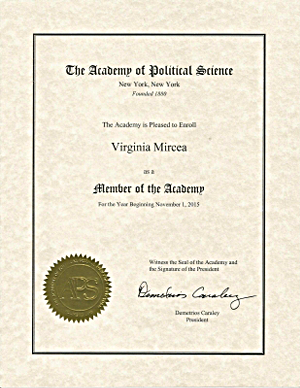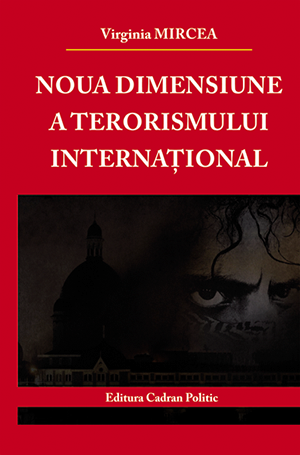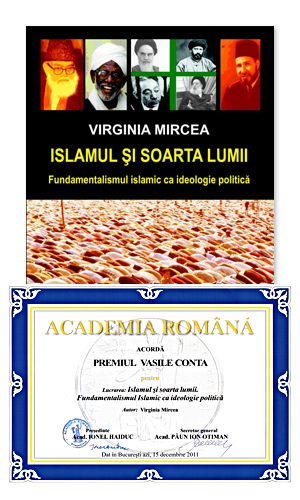
In the early years of 21st century, there were suggestions that the European Union could play the role of a “quiet superpower,” and even speculation that Brussels might become a hegemonic rival to the United States. Now, with the rise of China and talk of a new Cold War brewing between Washington and Beijing, the EU’s place in the world is looking dramatically less imposing.
For some experts and observers, the EU continues to be a “civilian power,” given its nonmilitary capabilities, or a “normative power,” referring to its historical role in helping to shape global norms on human rights and governance. A more apt term, popularized by Chad Damro at the University of Edinburgh, is that of a “market power,” due to the EU’s ability to influence foreign governments not through force or the threat of violence, but through inducements of better trade.
On this front, it has much to offer. In 2017, the combined GDP of the EU member states was $17.3 trillion, compared to America’s $19.4 trillion and China’s $12.2 trillion, according to the World Bank. Moreover, unlike China, the EU typically imports as much each year as it exports, making it irreplaceable for countries with export-driven economies.
The EU’s soft touch is one of its greatest assets, some argue
“The transformative capacity of the EU without resorting to force reflects its distinctive nature in global politics,” Mustafa Kutlay, a lecturer at City University of London, wrote in a study last year. Others, however, see it as the EU’s biggest weakness.
Judy Dempsey, a nonresident senior fellow at Carnegie Europe, argued in June that “Europe is in the throes of a geostrategic crisis… As a bloc, the union cannot do defense and it cannot do hard power because its philosophy is anchored on a peace project.” Her view is echoed by senior European officials. “There is no doubt that Europe needs to reposition itself in a changed world,” said German Chancellor Angela Merkel in May.
Michel Barnier, the former European commissioner and French foreign minister who is currently leading Brussels’ negotiations with the U.K. over Brexit, stated in May that “Europe still wields significant soft power, but we remain a hard-power minnow… Europe needs a second leg to stand on.” And as a recent op-ed by the Financial Times put it, “Authority over the world’s largest market and one of its biggest central banks gives the bloc a commercial power matching that of the US and unrivalled by anyone else. Yet Europe is either unaware of its own strength or fearful of wielding it.”
There is no other region in the world where the EU is trying to assert its values as much as in Southeast Asia.
While Europe might seem to be in the grip of an existential crisis, one area of the world where it is showing itself to be more assertive is in Southeast Asia. In February, the EU opened an 18-month investigation into whether Cambodia should continue to be included in its preferential Everything But Arms, or EBA, scheme, which gives tariff and quota-free access to exports from developing countries. The move—which came in response to democratic backsliding by the Cambodian government, one of the largest recipients of European aid in recent decades—could be costly for Cambodia. Last year, almost all of the $6 billion worth of goods its producers sold to European markets, which account for almost half of all Cambodian exports, enjoyed the trade preferences under the EBA.
Brussels is also threatening to remove Myanmar from the EBA arrangement for the grave human rights abuses committed by its military against the country’s Muslim Rohingya minority—what some call a “genocide.” The EU also irked Malaysia and Indonesia, the world’s two largest producers of palm oil, when in March the European Commission concluded that palm oil cultivation leads to excessive deforestation and recommended banning its import. This followed a vote in 2017 in which most European parliamentarians agreed to ban biofuels made from palm oil by 2020, in keeping with the EU’s renewable energy targets.
At the same time that the EU has used the threat of these punitive measures to try to force change in parts of Southeast Asia, Brussels has also used the promise of a lucrative free-trade agreement with Vietnam, the EU’s second-largest trading partner in the region after Singapore, in order to extract more concessions from the ruling Communist Party over labor conditions. The trade deal, known as the EVFTA, had been on the table for years, but was delayed by EU bodies over the past two years. It was finally signed on June 30.
The EU has long used access to its attractive common market as leverage for shaping trade and regulatory policy. But in recent years, it has begun to make trade dependent on certain political conditions, which some analysts consider a “pivot” in European policy. In late 2018, for instance, Cecilia Malmström, the EU commissioner for trade, said that “trade policy must be led by our values.” And arguably, there is no other region in the world where the EU is trying to assert its values as much as in Southeast Asia.
Channels of Influence
There is good reason for making the region a test case for this new assertiveness. The EU is the second-largest trading partner of the Association of Southeast Asian Nations, the region’s main trade bloc, after China; ASEAN, in turn, is the EU’s third-largest trading partner, after the United States and China. Given that most Southeast Asian nations still have export-driven economies, and that the EU is the largest market for most of them, the threat of reduced trade is one that must be taken seriously by governments whose popularity depends on reliable economic growth.
Yet the EU’s approach has yet to prove its effectiveness in actually influencing the behavior of foreign governments. Cambodian Prime Minister Hun Sen, who has boasted that his country would survive without EBA status, hasn’t yet started to enforce the reforms the EU is demanding. “I have already said that if they give us preferential access, it won’t make us rich. If they withdraw it from us, it won’t make us dead,” he said in March.
The Cambodian government believes that it can turn to China, now its most loyal partner, if its economy does contract as a result of European sanctions. The government of Myanmar also doesn’t yet appear to be reversing its policy. Malaysia and Indonesia, for their part, have threatened to take the EU to the World Trade Organization if its ban on palm oil is enforced and have vowed retaliatory sanctions, including the cancellation of billions of dollars’ worth of defense contracts.
In other words, despite its increased assertiveness in Southeast Asia, Europe’s position reveals the same problems highlighted by experts and European officials themselves: Save for trade, it has few other means to influence the behavior of local governments. “Escalating to economic sanctions (or revoking preferences) against a least developing country is a policy failure in itself, as the EU effectively signals that it has run out of options and channels of influence,” Hanna Deringer, Hosuk Lee-Makiyama and Danny Murty, of the European Centre for International Political Economy (ECIPE), wrote in a paper released earlier this year.
When it comes to diplomatic pressure, what the EU really lacks is a credible military component. The existing European military bureaucracy has few connections with its Southeast Asian counterparts. Members of the EU Military Committee—or EUMC, the highest military body within the European Council—rarely visit Southeast Asia, and almost never to speak politics. And the EU doesn’t take part in Asian security arrangements, except for the ASEAN Regional Forum, an annual security summit. Despite recent efforts to jumpstart EU defense initiatives, this situation is unlikely to change anytime soon.
Save for trade, Europe has few other means to influence the behavior of local governments.
That is a problem, considering that military-to-military relations have become an increasingly important way for foreign governments to gain influence over domestic affairs in Asia. Take Cambodia. When the U.S. deputy assistant secretary of defense for South and Southeast Asia, Joseph Felter, visited Cambodia earlier this year, a government spokesman rebuked him for talking politics with senior Cambodian military officials. The episode only revealed publicly what has long been known behind the scenes: that the U.S. and China see military-to-military diplomacy as a way of influencing domestic policy in Southeast Asian countries, especially those—like Thailand and Myanmar—where the armed forces still rule behind the façade of ostensibly civilian governments.
The EU’s failure to use military diplomacy as a channel of influence is shared by individual European member states. Germany, the EU’s largest economy and often its main policymaker, is almost institutionally adverse to projecting hard power abroad. “Berlin talks a great deal about partnerships, but its economic and trade ties with the countries in Southeast Asia and on the rim of the Indian Ocean lack any security content,” wrote Dempsey, of Carnegie Europe, in May.
If there is an exception, it is France, which will be the only remaining EU country with any real military interest in the Asia-Pacific once Britain formally leaves the bloc. In addition to its overseas departments and territories in the Indian and Pacific oceans, France has signed strategic partnerships with Indonesia in 2011, Singapore in 2012 and Vietnam in 2013, and has sold submarines and offers training to Malaysia’s armed forces. It also maintains good relations with other important actors in the region, including Japan, South Korea and Australia, and last year called for a Australia-France-India “strategic axis” in the Indo-Pacific.
The Struggles of a Market Power
The EU has laid out its case to become a global power, particularly in its “Global Strategy for Foreign and Security Policy,” released in 2016. As Federica Mogherini, the EU’s outgoing foreign policy chief, wrote in the foreward, “The European Union has always prided itself on its soft power—and it will keep doing so, because we are the best in this field. However, the idea that Europe is an exclusively ‘civilian power’ does not do justice to an evolving reality.” The EU strategy document went on to say that, “Principled pragmatism will guide our external action in the years ahead.”
One area where the EU could play a leading role in Southeast Asian security affairs is as an arms seller. The Stockholm International Peace and Research Institute found that in 2018, the combined EU member states, including Britain, were the second-largest exporter of arms worldwide, after the United States. And many of the countries that most rely on European weapons sales are in Southeast Asia, with Malaysia buying 58 percent of its arms from EU nations, Indonesia 46 percent, Brunei 82 percent, Singapore 42 percent and Thailand 41 percent.
Yet here, the EU’s principles stand in the way of its potential influence, as the union remains rather squeamish about weapons sales abroad, especially to some of Asia’s least democratic nations. “The contrast between the burgeoning arms trade at the member states’ level and Brussel’s lack of coherent strategic thinking on Asia’s security is striking,” Eva Pejsova, of the European Union Institute for Security Studies, noted in a paper published last year. “The debate on European arms sales suggests a major conceptual divide: between a values-based foreign and security policy discourse at the EU level on the one hand and the economic interests and activities of the Union’s member states on the other.”
No one expects the EU to go from a soft-power influencer to a hard-power enforcer on the global stage anytime soon. But even as a market power, it struggles to determine which of its at times competing values it wants to defend. The EBA, for instance, is designed to work toward “eradicating poverty and promoting human rights” in developing nations. Yet the EU now finds itself in a bind. Barring Cambodia from the EBA would sanction the worsening human rights conditions under Hun Sen. But its impact on Cambodia’s manufacturing sector will also likely increase unemployment and, with it, poverty. A report released earlier this year by the European Parliament, which significantly played down the economic costs to Cambodia if the trade privileges under the EBA were withdrawn, also noted the contradiction between the two goals and stressed that “the EU’s decision needs to strike the right balance between these priorities.”
The EU is trying to support an international order through market power alone at a time when the U.S. and China are disrupting that order with a hard-scrabble approach.
For all the talk of “principled pragmatism,” moreover, the EU often seems more committed to righting the wrongs of bad actors than to developing sustainable ties with compatible governments. In a report published last August, Richard Youngs, senior fellow in the Democracy, Conflict and Governance Program at Carnegie Europe, observed that “the EU has made little effort to fashion cooperation with” the so-called “rising democracies,” which include the likes of Indonesia and South Korea. “It is telling that the EU has far more cooperation with autocratic regimes on controlling migration than it does with other democratic powers to advance human rights and democratic reforms,” he wrote.
Through its proposed palm oil ban, the EU has irked both Indonesia, the region’s largest economy and arguably most stable democracy, and Malaysia, which saw a democratic change of government last year for the first time in its history. Yet at the same time, the EU has now signed a free trade deal with Vietnam, a one-party communist state that has seen increased levels of repression since 2016. This naturally leads to claims of hypocrisy and distrust over the values the EU is trying to foster in the region.
The EU’s credibility on human rights and democracy has also been undermined by the rise of illiberal governments among its own member states, such as Hungary and Poland.
Southeast Asian leaders may well argue that the EU should get its own house in order before it tries to sort out political affairs on another continent. Some have even used disunity in Europe to their own advantage. Between June 3-10, delegations from the European Commission and the European External Action Service led another “fact-finding” mission in Cambodia. However, just three days after the EU delegates left Cambodia, Hun Sen arrived in Hungary to meet his counterpart, Prime Minister Viktor Orban, ostensibly to talk about how the Hungarian government would lobby the EU on Cambodia’s behalf. This came after Myanmar’s civilian leader, Aung San Suu Kyi, made a rare trip to Europe months earlier also to meet with Orban in Budapest, where they both agreed that migration is “one of the greatest challenges” facing the world, and derided attempts by bureaucrats in Brussels to “export” democracy, a nod to pressure from the EU on both countries to mend their political ways.
In many cases, there is a serious divide between the EU’s ideals and practical realities on the ground. “Europe looks for grand accomplishments and tries to change the Asia-Pacific—the centre court of world trade—which policymakers may not always have had the curiosity or patience to understand. In this regard, Europe remains a romantic idealist, often set out to achieve the impossible,” Hanna Deringer and Hosuk Lee-Makiyama, of ECIPE, wrote last year. Such romanticism isn’t shared by some Asian leaders. “Deep down, quite a few ASEAN members are resentful over the EU’s condescending attitude toward them, whether it has been over trade or human rights issues,” Kavi Chongkittavorn, a veteran journalist on regional affairs, reported in the Bangkok Post in January. He quoted one diplomat who told him that, “The EU loves to make ASEAN furious, if not belittle us.”
More Principled, or More Pragmatic?
The problem the EU faces is that it is trying to support a liberal international order through market power alone at a time when the U.S. and China appear ready to disrupt that order with a hard-scrabble approach to trade as part of their broader geopolitical competition. In part, this is the result of an EU that doesn’t know how to position itself in a multipolar world increasingly called on to choose between the U.S. and China. Clearly, the EU still depends heavily on the U.S. for security, yet its member states are increasingly reliant on China for investment and trade. Indeed, Italy became the first major member state to sign up for Beijing’s signature Belt and Road Initiative in March, while member states in the Western Balkans are also accepting more Chinese investment.
The U.S.-China rivalry is having an impact on Southeast Asia, too. Since Washington now views Southeast Asia primarily through the lens of its China policy, it has greatly simplified how it deals with Southeast Asian nations, chiefly separating them into friendly and unfriendly camps. Closer relations, including defense ties, between the U.S. and Vietnam, which is now the loudest opponent of Beijing’s territorial claims in the South China Sea, can be seen in this light.
The EU, however, lacks such a committed position on China, and doesn’t explicitly see the region through the U.S.-China split. The closest the EU has come to articulating an assertive position on China is through its so-called strategic outlook, released in March, which reads:
China is simultaneously a cooperation partner with whom the EU has closely aligned objectives, a negotiating partner, with whom the EU needs to find a balance of interests, an economic competitor in pursuit of technological leadership, and a systemic rival promoting alternative models of governance. This requires a flexible and pragmatic whole-of-EU approach enabling a principled defence of interests and values.
Whatever the EU’s policy on China ends up being, it will intrinsically determine how the bloc deals with Southeast Asia. What remains to be seen is whether Brussels will view relations with the region’s governments as “strategic” in the context of a still undefined EU geopolitical worldview, or whether relations will be guided by the EU’s stated “principled pragmatism,” in which European values and interests will be assessed and balanced on a case-by-case basis.
When it comes to economic diplomacy, the EU should “engage the world for what it really is, rather than use reality as an excuse to disengage.”
One way of avoiding the path taken by the U.S.—that is, judging Southeast Asian states based on their geopolitical outlook—would be to pursue relations with them all through ASEAN. But this much derided institution exerts almost zero influence among its own member states, due to its policy of not interfering in domestic affairs. Working through ASEAN would support multilateralism, which the EU prefers, but it would reduce the leverage the EU wields over Southeast Asian affairs and reduce its ability to enforce “principled pragmatism.”
If an EU-ASEAN trade agreement were signed, for instance, all Southeast Asian nations would be rewarded with improved trade terms, not just those that abide by the EU’s values. This would mean that the EU couldn’t distinguish between countries that respect or disrespect human rights and liberal democracy, nor would it be able to sanction countries that drift away from the EU’s principled values. “Obviously, it is illogical (and infeasible) to negotiate a regional agreement that effectively consists of bilateral agreements while concurrently revoking preferences bilaterally,” as Deringer, Lee-Makiyama and Murt have warned.
As for economic diplomacy, they added, the EU should “engage the world for what it really is, rather than use reality as an excuse to disengage.” For the EU, this means deciding whether, with its “principled pragmatism,” it wants to be more principled or more pragmatic.
Becoming more principled might require adding more channels of influence beyond “market power,” which clearly does not provide enough leverage to influence foreign governments. Becoming more pragmatic, however, would mean accepting that the EU cannot always prioritize its values in diplomacy, and that good relations with undemocratic governments are justifiable if they maintain or expand EU influence in as strategically important a region as Southeast Asia.
Source: WRP







































































































